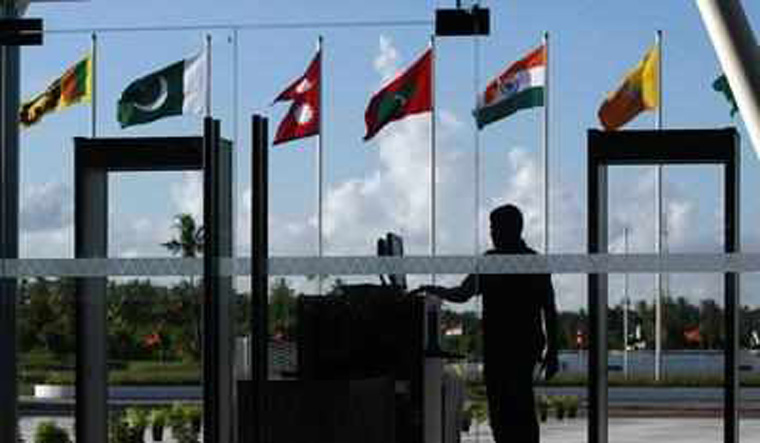India will be hosting the secretary general of the South Asian Association for Regional Cooperation (SAARC) Esala Ruwan Weerakoon for a week starting Sunday though there are no signs—officially yet—to indicate that New Delhi maybe looking at re-energising the group
A great part of the failure of SAARC to achieve south Asian regional cooperation is the lack of cooperation between members India and Pakistan.
With no in-person meeting of SAARC heads in over six years, it requires the assent of every SAARC member to hold a summit: A tricky proposition ever since the Uri attack in 2016 sharpened India-Pakistan tensions.
The SAARC is a regional grouping comprising Afghanistan, Bangladesh, Bhutan, India, the Maldives, Nepal, Pakistan and Sri Lanka. The last SAARC summit was held in Kathmandu in 2014. The 2016 summit in Islamabad was called off following Indian opposition in the aftermath of the Uri attack. India’s withdrawal saw Bangladesh, Bhutan and Afghanisan also decline to participate.
In his message on the occasion of the 36th charter day of SAARC on December 8 last year, Prime Minister Narendra Modi said the full potential of the eight-member bloc can only be realised in an atmosphere free of terror and violence.
The SAARC leaders, under India's initiative, held a virtual meeting in March last year to work on a common strategy to effectively deal with the coronavirus pandemic. India led the setting up of a SAARC Covid relief fund, with most of the aid going to Nepal. However, even as all SAARC nations battled a borderless pandemic, soured relations made an appearance. Pakistan’s late donation of funds to the fund combined with a diplomatic war of words between the two.
With SAARC secretary-general Esala Ruwan Weerakoon set to visit India this week, the question of whether New Delhi can revive the organisation has returned.
Weerakoon’s week-long visit to India from today is intended to explore ways to deepen regional cooperation including in dealing with the coronavirus pandemic.
Weerakoon will hold talks with Minister of State for External Affairs Rajkumar Ranjan Singh, Foreign Secretary Harsh Vardhan Shringla and Secretary (East) in the Ministry of External Affairs (MEA) Riva Ganguly Das, according to an official schedule.
The schedule put out by the MEA said Weerakoon is visiting India from August 8-14.
People familiar with the agenda of Weerakoon's visit old PTI that boosting regional cooperation under the SAARC (South Asian Association for Regional Cooperation), including in dealing with the coronavirus pandemic, will figure in his talks with Indian officials.
China has made strides in raising its footprint in South Asia. Notwithstanding its Belt and Road Initiative, it has also set up the China-South Asia Emergency Supplies Reserve and Poverty Alleviation and Cooperative Development Center, following a virtual meeting with its own Foreign Minister and attended by the foreign ministers of Afghanistan, Bangladesh, Nepal, Pakistan and Sri Lanka, in April. Bangladesh foreign minister A.K. Abdul Momen later denied that the six-nation grouping was meant to exclude India, saying India was free to join.
India’s move to suspend vaccine exports even after delivering batches of Covishield that saw many in Bangladesh receive the first dose but not the second, left Dhaka seeking other suppliers. “The Chinese approached us at a time we were in dire need of vaccines,” Momen told The Hindu at an interaction on the sidelines of the connectivity conference in Tashkent.
While India's vaccine diplomacy won it goodwill in the initial months of the post-vaccine pandemic, it caused friction as home as a domestic shortfall in vaccines coincided with the devastating first and second waves.
Challenges for India in SAARC remain on the vaccine question. There is also the prospect of a Taliban-ruled Afghanistan, which would leave India with two presumably hostile SAARC members instead of just one.
How India handles the SAARC question in 2021 remains to be seen.
With inputs from PTI












